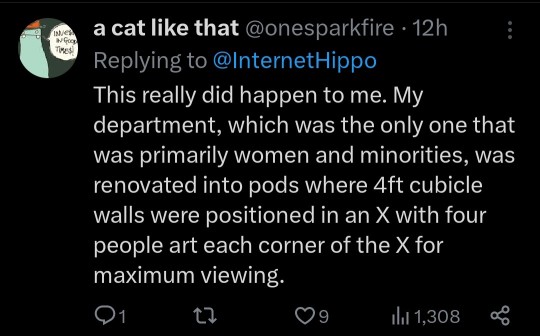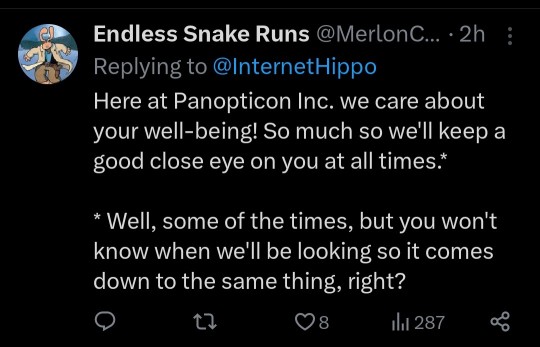#Michel Foucault
Text


Fernando Pessoa // Michel Foucault
#Fernando Pessoa#Michel Foucault#quotes#dark academia#light academia#chaotic academia#book quotes#poetry#classic literature
45K notes
·
View notes
Text







608 notes
·
View notes
Link
“This indictment is obviously an attempt by the Democrats to use against me the complex webs of power relations that influence the nature of rights and consequences in a given society and that we conceptualize as a legal system,” Trump said before quoting verbatim a passage from political philosopher Michel Foucault that reads, “The judges of normality are present everywhere. We are in the society of the teacher-judge, the doctor-judge, the educator-judge, the ‘social-worker’-judge; it is on them that the universal reign of the normative is based.”
3K notes
·
View notes
Text

-Storia della follia nell'età classica, Michel Foucault.
#frasi importanti#citazioni letterarie#frasi letterarie#frasi libri#frasi letteratura#leggeresempre#michel foucault#citazioni libri#citazione del giorno#citazione#letteratura#librisulibri
268 notes
·
View notes
Text

#panopticon#michel foucault#anarchism#insurrectionary anarchism#marxism#post structuralism#post modernism#nietzcheanism
184 notes
·
View notes
Text

“I don't feel that it is necessary to know exactly what I am. The main interest in life and work is to become someone else that you were not in the beginning. If you knew when you began a book what you would say at the end, do you think that you would have the courage to write it? What is true for writing and for love relationships is true also for life. The game is worthwhile insofar as we don't know where it will end.”
— Michel Foucault
#michel foucault#foucault#literature#lit#literature lover#literature quote#literature quotes#philosophy#philosophical#philosopher#philosophers#philosophy of life#philosophy quote#philosophy quotes#french philosophy#quote#quotes#excerpts#excerpt#quoteoftheday#bookworm#books#booklover#book#booklr#book quotes#book quotations
143 notes
·
View notes
Text
A true politics of psychiatry, or anti-psychiatry, would consist therefore in the following praxis: (1) undoing all the reterritorializations that transform madness into mental illness; (2) liberating the schizoid movement of deterritorialization in all the flows, in such a way that this characteristic can no longer qualify a particular residue as a flow of madness, but affects just as well the flows of labor and desire, of production, knowledge, and creation in their most profound tendency. Here, madness would no longer exist as madness, not because it would have been transformed into "mental illness," but on the contrary because it would receive the support of all the other flows, including science and art—once it is said that madness is called madness and appears as such only because it is deprived of this support, and finds itself reduced to testifying all alone for deterritorialization as a universal process. It is merely its unwarranted privilege, a privilege beyond its capacities, that renders it mad. In this perspective Foucault announced an age when madness would disappear, not because it would be lodged within the controlled space of mental illness ("great tepid aquariums"), but on the contrary because the exterior limit designated by madness would be overcome by means of other flows escaping control on all sides, and carrying us along.
– Gilles Deleuze and Félix Guattari, Anti-Oedipus: Capitalism and Schizophrenia
Perhaps one day one will no longer know clearly what madness really was...Artaud will belong to the ground of our language, and not to its rupture...Everything that we experience today in the mode of the limit, or of strangeness, or of the unbearable, will have joined again with the serenity of the positive. And what for us currently designates this Exterior stands a chance, one day, of designating us.
– Michel Foucault, History of Madness
#a world created in the process of its tendency#je est un autre#gilles deleuze#félix guattari#michel foucault#anti-oedipus
149 notes
·
View notes
Text

92 notes
·
View notes
Text
"… the major enemy, the strategic adversary is fascism. And not only historical fascism, the fascism of Hitler and Mussolini—which was able to mobilize and use the desire of the masses so effectively—but also the fascism in us all, in our heads and in our everyday behaviour, the fascism that causes us to love power, to desire the very thing that dominates and exploits us."
Michel Foucault, Preface to “Anti-Oedipus: Capitalism and Schizophrenia”, by Gilles Deleuze & Felix Guattari
128 notes
·
View notes
Text
Schools serve the same social functions as prisons and mental institutions- to define, classify, control, and regulate people.
Michel Foucault

96 notes
·
View notes
Text
"I wasn't always smart, I was actually very stupid in school ... [T]here was a boy who was very attractive who was even stupider than I was. And to ingratiate myself with this boy who was very beautiful, I began to do his homework for him—and that's how I became smart, I had to do all this work to just keep ahead of him a little bit, to help him. In a sense, all the rest of my life I've been trying to do intellectual things that would attract beautiful boys."
— Michel Foucault, 1983
33 notes
·
View notes
Text
Michel Foucault, Noam Chomsky, Eidhoven, 1971
32 notes
·
View notes
Text

Thomas Hirschhorn with Marcus Steinweg, Foucault-Map, 2004 [Col. Fundação de Serralves – Museu de Arte Contemporânea, Porto. © Thomas Hirschhorn, Marcus Steinweg]
#art#drawing#visual writing#collage#cardboard#mixed media#map#thomas hirschhorn#marcus steinweg#michel foucault#fundação de serralves#museu de arte contemporânea porto#2000s
103 notes
·
View notes
Text
power relations are rooted deep in the social nexus, not a supplementary structure over and above 'society' whose radical effacement one could perhaps dream of. To live in a society is, in any event, to live in such a way that some can act on the actions of others. A society without power relations can only be an abstraction. Which, be it said in passing, makes all the more politically necessary the analysis of power relations in a given society, their historical formation, the source of their strength or fragility, the conditions that are necessary to transform some or to abolish others. For the say that there cannot be a society without power relations is not to say whether that those which are established are necessary, or that power in any event, constitutes an inescapable fatality at the heart of societies, such that it cannot be undermined. Instead, I would say that the analysis, elaboration, and bringing into question of power relations and the 'agonism' between power relations and the intransitivity of freedom is an increasingly political task -- even, the political task that is inherent in all social existence.
--Michel Foucault, "The Subject and Power" from Power, pg. 343
84 notes
·
View notes
Text
kaçınma en temel nevrotik eğilimlerden birisidir.
bruce fink - lacancı özne
#kitap#edebiyat#blogger#felsefe#kitaplar#blog#kitap kurdu#friedrich nietzsche#bruce fink#jacques lacan#lacancı özne#lacanda aşk#sigmund freud#carl jung#psikolojide tipler#dört arketip#psikanaliz#slavoj zizek#felsefe blog#michel foucault#kelimeler ve şeyler#jean paul sartre#bulantı#varlık ve hiçlik#georg wilhelm friedrich hegel#tinin fenomenolojisi#karl marks#alman ideolojisi#jean baudrillard#ulus baker
29 notes
·
View notes
Text
To imagine a sexuality that doesn't conform to law or nature is not what disturbs people. But that individuals are beginning to love one another - there's the problem.
Michel Foucault, Ethics: Subjectivity and Truth
149 notes
·
View notes